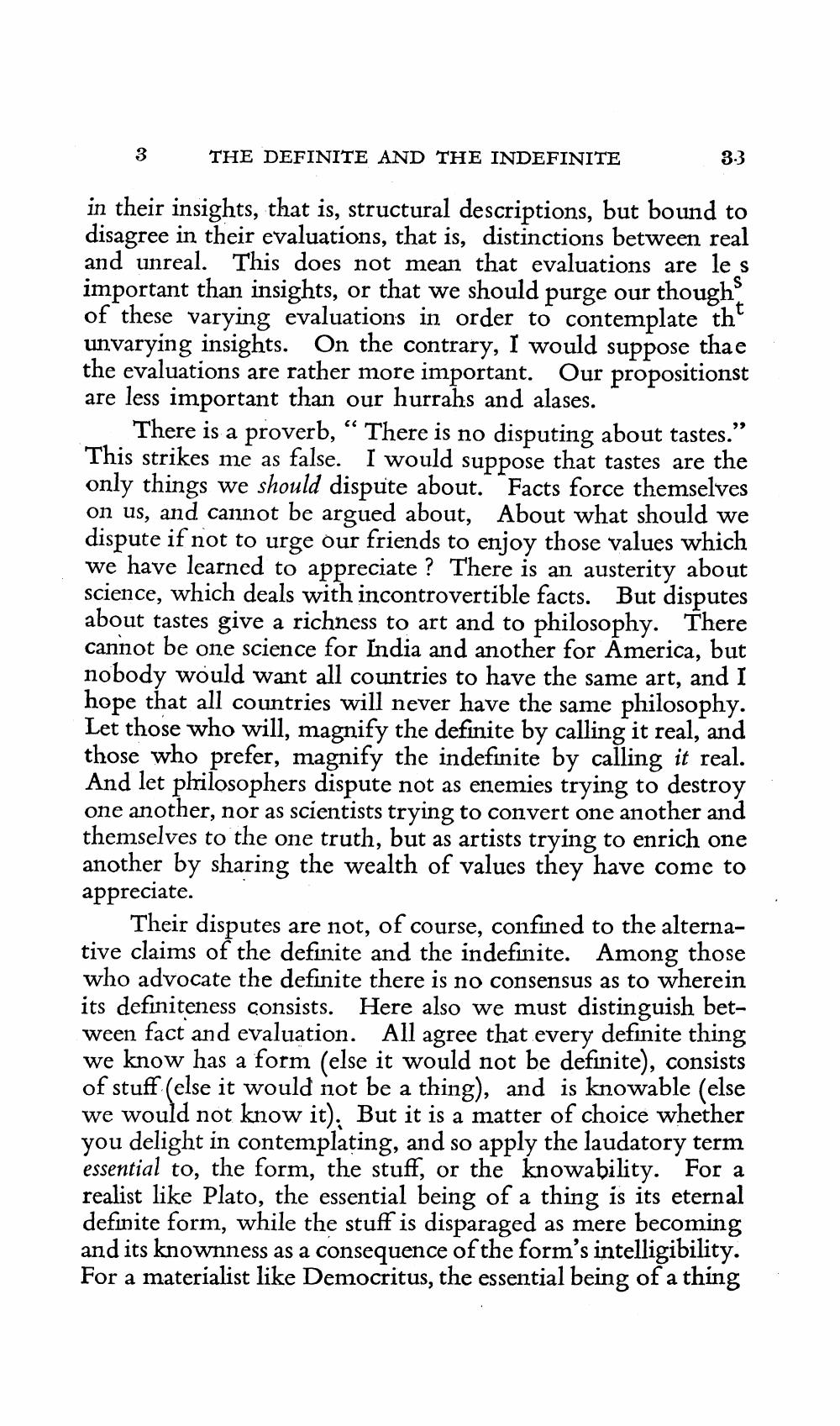Book Title: Definite And Indefinite Author(s): George Burch Publisher: George Burch View full book textPage 9
________________ 3 THE DEFINITE AND THE INDEFINITE 3.3 in their insights, that is, structural descriptions, but bound to disagree in their evaluations, that is, distinctions between real and unreal. This does not mean that evaluations are le s important than insights, or that we should purge our though of these varying evaluations in order to contemplate th unvarying insights. On the contrary, I would suppose thae the evaluations are rather more important. Our propositionst are less important than our hurrahs and alases. There is a proverb, “ There is no disputing about tastes." This strikes me as false. I would suppose that tastes are the only things we should dispute about. Facts force themselves on us, and cannot be argued about About what should we dispute if not to urge our friends to enjoy those values which we have learned to appreciate ? There is an austerity about science, which deals with incontrovertible facts. But disputes about tastes give a richness to art and to philosophy. There cannot be one science for India and another for America, but nobody would want all countries to have the same art, and I hope that all countries will never have the same philosophy. Let those who will, magnify the definite by calling it real, and those who prefer, magnify the indefinite by calling it real. And let philosophers dispute not as enemies trying to destroy one another, nor as scientists trying to convert one another and themselves to the one truth, but as artists trying to enrich one another by sharing the wealth of values they have come to appreciate. Their disputes are not, of course, confined to the alternative claims of the definite and the indefinite. Among those who advocate the definite there is no consensus as to wherein its definiteness consists. Here also we must distinguish between fact and evaluation. All agree that every definite thing we know has a form (else it would not be definite), consists of stuff (else it would not be a thing), and is knowable (else we would not know it), But it is a matter of choice whether you delight in contemplating, and so apply the laudatory term essential to, the form, the stuff, or the knowability. For a realist like Plato, the essential being of a thing is its eternal definite form, while the stuff is disparaged as mere becoming and its knownness as a consequence of the form's intelligibility. For a materialist like Democritus, the essential being of a thingPage Navigation
1 ... 7 8 9 10 11 12
